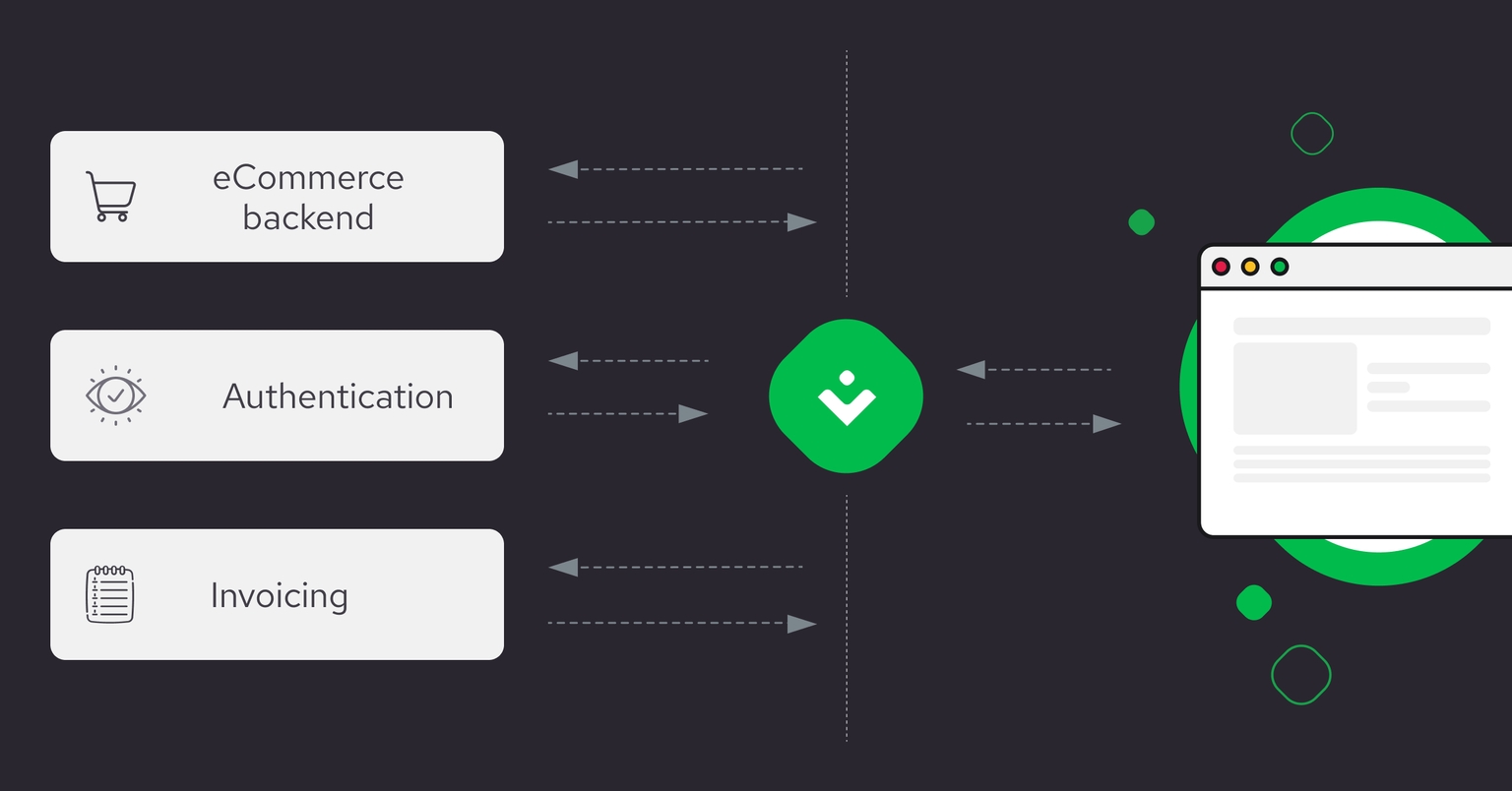Explore by Category:
Company News
Introducing Data Orchestration: Make Your eCommerce Data Work for You
October 30, 2023
•
If eCommerce has taught us anything, it's that data, when harnessed correctly, can be a powerful ally. That’s why we’re so excited about the feature we introduced a few days ago – Data Orchestration for Alokai.
And we don’t take it lightly when we say it’s a real game changer!
Data has always been the backbone of any successful eCommerce operation. However, managing and making sense of data from various sources was like solving a jigsaw puzzle without the reference image. Multiple databases, disparate systems, and unconnected analytics platforms were the norm.
This fragmentation led to inefficiencies for store owners and less-than-stellar user shopping experiences. And then we’ve changed it – once and for all!
So, what's Data Orchestration all about?
Orchestration offers a streamlined approach to managing multiple server requests to achieve a particular task. Instead of sending multiple back-and-forth requests between the client’s side and the backend, Data Orchestration is organized through the middleware that significantly boosts your store’s performance.
In essence, it consolidates multiple server calls into one endpoint that can be called by the frontend application. Behind the scenes, it coordinates data exchange between numerous services to achieve the desired result. This becomes a game-changer for applications, minimizing frontend load where multiple server interactions might occur concurrently.
But there are more benefits it brings to the table.
For store owners:
- Streamlined operations: Orchestrating APIs provide a single, unified interface for interacting with multiple services, simplifying complex integrations.
- Enhanced performance: Making fewer calls from your frontend application means less network overhead and increased performance.
- Better ROI: Efficient data utilization means more accurate targeting. Orchestration gives you tools to say goodbye to scattergun marketing campaigns and embrace precise, result-oriented strategies. In other words, it's built for scalability, right from the outset.
For shoppers:
- Personalized experience: Stores can now cater to individual shopper preferences. Whether it's product recommendations or browsing patterns, the personalization now is like never before.
- Faster browsing: By leveraging orchestrated data, Alokai can optimize load times and site performance, leading to smoother, quicker browsing experiences.
Enhanced personalization, faster

Data Orchestration makes personalization easier by consolidating customer information from various sources. Content can be delivered based on real-time user behavior, preferences, and historical data.
Imagine showing products based on a user’s past purchase history or even their current browsing pattern. The opportunities are endless!
How does it look in practice?
Consider a multi-brand store that depended on various backend commerce services for inventory retrieval. By implementing an orchestration layer, they can now consolidate these calls, leading to a more efficient frontend operation and a reduction in network requests.
This holistic view enabled them to tweak marketing strategies and optimize inventory management, leading to better sales and satisfied customers.
You can also aggregate information from various sources like a commerce backend or your CMS with a middleware integration. It could look something like this:
export const integrations = {
sapcc: {
location: "@vsf-enterprise/sapcc-api/server",
configuration: {
// ...
},
extensions: (extensions) => [
...extensions,
{
name: "sapcc-contentful-extension",
extendApiMethods: {
getPDP: async (context, params: { id: string }) => {
const sapcc = context.getApiClient("sapcc");
const contentful = context.getApiClient("contentful");
const [product, content] = Promise.all(
sapcc.api.getProduct({ id: params.id }),
contentful.api.getEntries({
content_type: "product",
"fields.sku": params.id,
})
);
return {
product,
content,
};
},
},
},
],
},
contentful: {
location: "@vsf-enterprise/contentful-api/server",
configuration: {
// ...
},
},
};We're just scratching the surface here. But it’s already safe to say that Data Orchestration isn’t just a feature; it's the future. Let us know, how will you take advantage of Data Orchestration?
SHARE THIS
SHARE THIS
Interested in going composable?
Get in touch with our team and uncover the potential.